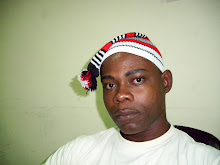
Hip-hop sensation twin act, PSquare, probably attracts more dedicated fans than the Nigerian Super Eagles; and indeed the whole 20 football clubs in Nigeria’s Premier League.
It is no secret that the Nigerian music industry has enjoyed tremendous growth and popularity; neither is it a secret that even faithful hardliners agree that Nigeria’s sports industry is spiralling on a downhill fall.
Football, unarguably the biggest sports, achieved incredulous levels of nationalism in Nigeria’s ethnicity-frayed polity during the heydays of the Super Eagles exploits in USA 94 World Cup, and Atlanta 96 Olympic games.
Today, the nation’s footballers and athletes perform woefully in international competitions, leaving the fans in the rut. Consequently, the fan base has dropped to dangerous levels.
Arresting the trend: a fusion of music and sports.
While Nigeria’s talented sportsmen and women flee in droves to the more organized, and glamorous leagues of Europe, and even sister African countries; our talented musicians abroad are hastening back home to be part of the renaissance.
Multinational blue chip companies, realizing the huge potentials of Nigeria’s music industry, are tapping into the dream through. They have unleashed an avalanche of promos, sponsorship deals, and even grass-root talent development. Our sports administrators could reawaken public interest in sports by following suit.
They should create more synergy between Nigeria’s music and its sports.
Multiple award winner, Tuface Idibia, has a football academy. Sports administrators should invest in this project, and also encourage other music stars to follow suit. An extensive public awareness campaign could be adopted in this regard.
Popular musicians should be appointed sports ambassadors. They should be adopted as symbols for specific clubs; their presence should be courted, at all costs, to sports competitions. Sports administrators should engage their services at sports events such as awards.
Nigeria’s music industry is wholly managed by private entrepreneurs; our sports industry should tow same line. The present situation, where state governments own and run clubs, can no longer be tolerated. The blitz of such leagues, as the English Barclay’s Premier League, is as a result of the aggressive marketing and investments of club owners who are private businessmen. Ownership of clubs should be wrested from state hands, and sold to interested investors.
The current travails of Nigeria’s Flying Eagles in the hands of FIFA’s MRI scheme epitomize our poor grass root development initiatives. It is highly improper for a country to feature sportsmen/women who are decades older than specified limits for age-grade competitions. Grass-root development should be embraced. Music sensations; Kc Presh, Wande Coal, etc were discovered in talent hunts and developed.
The Star Trek initiative of Nigerian Breweries Plc and the Project Fame initiative of MTN are examples of corporations investing in talent hunts geared to discover and nurture musicians. Sports administrators could partner with the social corporate responsibility projects of such blue chip companies.
It is only when all these things are done that; maybe, Nigerian sports would command the level of interest and respect that its music industry does.





